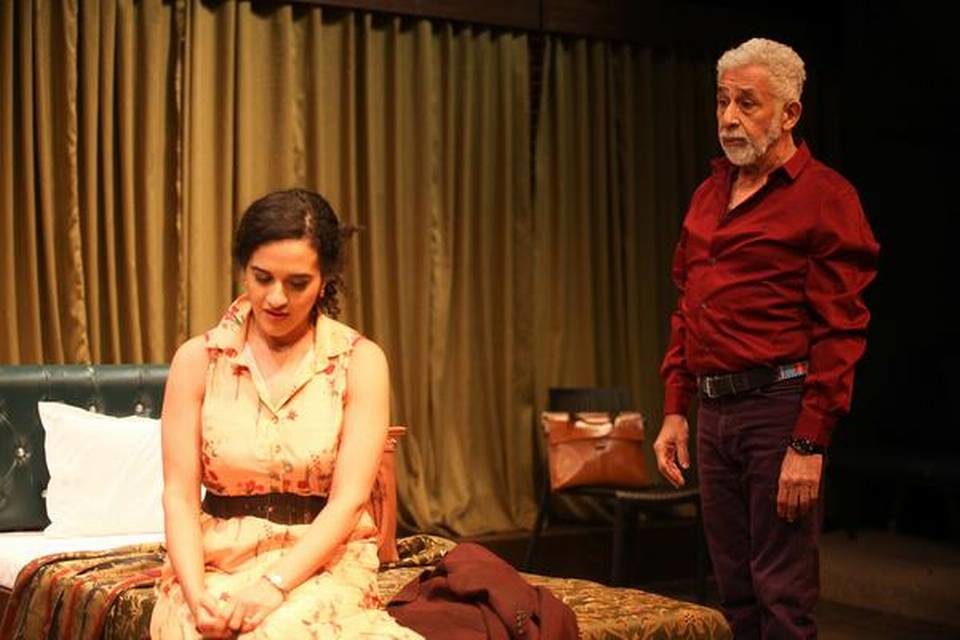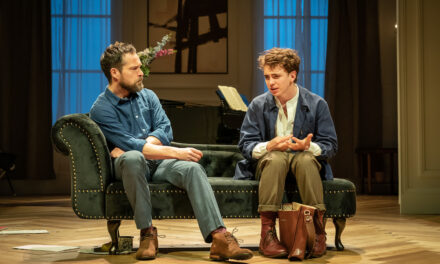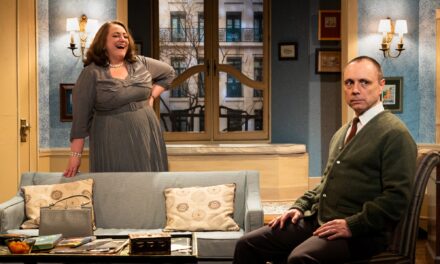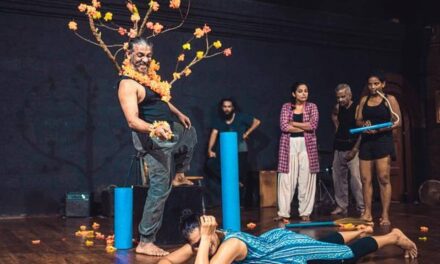The irreverent stage persona of Naseeruddin Shah, cocking a snook at societal mores and expectations, is upended in The Truth, a new production from Motley in which a philandering man is given a taste of his own medicine by those he holds closest. The text is Christopher Hampton’s English translation of Florian Zeller’s La Vérité, with Shah and Avantika Akerkar playing a well-heeled couple, KC and Avan, whose marriage encounters an encumbrance. KC’s best friend Zed (Gaurav Sharma) is married to winsome doctor Lovelyn (Meher Mistry). Of course, at the very outset, it is revealed that KC is carrying on a clandestine love affair with Lovelyn, that is played out in seedy hotel rooms, alibis and tongue-in-cheek sophistry in place. As things come to pass, the dalliance becomes too much to bear for Lovelyn and she suggests that the truth be revealed to their significant others. What follows is the unraveling of a crisscrossed narrative that is perhaps a tad more unpredictable than what one might expect from a tale of infidelity as dated as the stars.
In the spotlight
Motley’s extended tryst with Zeller’s The Father — a darkly comic exploration of a man’s descent into dementia — might have prompted this subsequent foray into a now-familiar sensibility, but the two plays are as unlike as chalk and cheese. The two do afford Shah the lion’s share of the limelight, but in The Truth, his co-actors are dramatic entities in their own right. They are agents of their own compulsions, never just foils to the actor’s mercurial foibles. Given to sartorial eccentricities (burgundy pants and purple jackets) and verbal flourishes, Shah’s feigned rock-star persona is thus bludgeoned down into something relatable and, almost compellingly, ordinary.
Universal themes
The changing of the French names in the original to bourgeois Indian monikers, translocates the tale from suburban Paris to a nondescript upper middle-class Mumbai setting. The mise en scène is adroitly repurposed from scene to scene to resemble the plush if characterless interiors of inner-city gentrified living. This gives off the vibe of a narrative that could well be taking place in our own backyard.
The play is structured like a standard bedroom farce. Each reveal is a gag, and there are sporadic attempts at broad humor by Shah, but overall the tone of this production is strangely decorous. The characters come across as upright and conscientious despite all the evidence to the contrary. This almost makes the case for a new moral code in which monogamy is no longer de rigueur, but Zeller sticks to the agenda of drawing mirth from the covert affaire de cœur rather than sanctifying it.
It must be said that there is truly very little bitterness and bite to the proceedings, even when a Pandora’s box of unsavory revelations dangerously threatens to spill over into well-appointed drawing rooms. Take, for instance, Avan, the all-knowing wife. She is almost too blasé about her husband’s indiscretions, preferring to trip him over with his own accidental disclosures and Freudian slips, instead of confronting him head-on. Akerkar approaches the part with composure and alertness but almost inadvertently, Avan becomes a moral fulcrum for the play which, as we discover a little later, is a misapprehension of sorts.
Modern lives
Shah, as expected, works well with the contradictions at his disposal. His interactions with Mistry are certainly diverting — in one scene, he makes a comic adventure out of a missing sock after an afternoon sexcapade — but it’s his grappling with his own hypocrisy that contributes the most to the evening’s entertainment. KC is utterly clueless about his own moral intransigence even when he is well ensconced in bed with his best friend’s wife. Both Avan and Zed offer up mirrors of self-introspection but male ego, that old bugbear, stops KC from looking beyond the unmistakable whiff of a betrayal that is not entirely of his own making. He thus leaves the enterprise none too wiser.
The absence of emotional high stakes in The Truth could have well allowed us to focus on the play’s underpinnings, philosophical or otherwise, but even those are rather thin on the ground. To some measure, a human condition is being played out, but it is as a series of pithy truisms that can be spotted a mile off rather than a complex psychological portrait of modern lives.
The Truth runs at Prithvi Theatre till mid-December.
This article appeared in The Hindu on November 27, 2018, and has been reposted with permission.
This post was written by the author in their personal capacity.The opinions expressed in this article are the author’s own and do not reflect the view of The Theatre Times, their staff or collaborators.
This post was written by Vikram Phukan.
The views expressed here belong to the author and do not necessarily reflect our views and opinions.


















